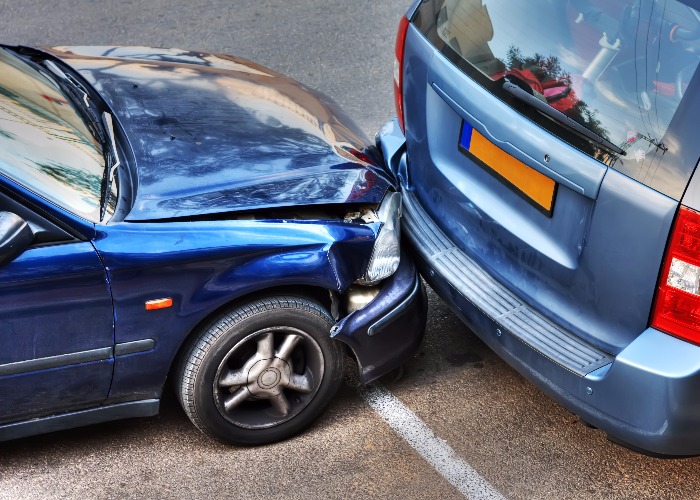Your rights if you're hit by an uninsured driver

There are around one million uninsured vehicles on British roads. If you're in an accident with one of them, what should you do?
Sections
Rise in victims of uninsured drivers
There has been a surge in the number of claims for victims of uninsured or hit-and-run drivers according to the Motor Insurers’ Bureau (MIB), following years of decline.
In the year to July, the MIB received 12,000 claims up 10% compared to the 11,000 it received year before.
Claims from victims of uninsured drivers had been declining since 2004 when they reached 25,000, but this year the MIB expects to pay £256 million out to victims, which will add an average of £15 to each motor insurance premium.
The MIB reckons the increase is down to more people driving without insurance, more vehicles on the road and an increase in people aware of the process to make claims.
There are thought to be one million uninsured vehicles in Great Britain, which means that one in every 38 vehicles on the road (4%) is uninsured.
So, what are your rights when you're involved in an accident with an uninsured driver? And how do you go about getting your money back?
Was it your fault?
If an accident was entirely your fault (for instance, you hit another car from behind), then you can't seek reimbursement from the other driver, regardless of whether they have insurance or not.
If you have 'fully comp' insurance, then you should claim against this policy for repairs. Unfortunately, this will mean paying an excess (often £100 or more) and, possibly, losing your no-claims discount.
If you make an 'at fault' claim and lose your no-claims discount, then your next renewal premium could leap dramatically and stay higher for at least three more years.
Since 2004, Direct Line has operated an 'uninsured driver promise' for fully comprehensive policyholders. If you make a claim for an accident that is not your fault and the other vehicle is uninsured, then you won't lose your no-claims discount and Direct Line will refund your excess.
The AA – the UK's biggest insurance broker – has a similar promise. Any driver insured through the AA involved in an accident with an uninsured vehicle will no longer lose their excess and no-claims discount.
The uninsured driver is to blame
In theory, at-fault uninsured drivers are personally responsible for all damages and personal injuries they cause.
In practice, people driving without insurance have few or no assets to meet these financial liabilities and the chance of successfully recovering damages from an uninsured driver is nearly zero.
So, where can you turn to reclaim uninsured damages?
The Motor Insurers' Bureau
The Motor Insurers' Bureau (MIB) has been operating since 1946 and is funded by the UK's motor insurers and – by extension – insured, law-abiding motorists.
If you're involved in an accident with an uninsured vehicle and forced to claim on your own insurance, then the MIB will compensate your insurer for the costs of your claim. Once this compensation has been received, your insurer should reinstate your no-claims discount and cancel any corresponding premium increase.
The MIB pays out compensation to those who suffer personal injury or damage to their property as a result of accidents involving uninsured motor vehicles.
In effect, this agreement between the government and the MIB ensures that innocent victims of uninsured drivers don't lose out financially.
Then again, when a driver is untraced, the MIB can pay compensation for property damage only where the vehicle concerned has been identified.
So, if both driver and vehicle are not identified (such as in 'hit and run' accidents), then the MIB won't pay out for property damage but will pay out personal-injury claims.
Who needs motor insurance?
Driving without insurance is illegal, but that still doesn’t stop many from doing it.
The minimum level of cover you need to have is third party liability cover, which means you are covered for the damage you cause to another vehicle or property.
Driving without insurance carries a minimum £300 penalty as well as six penalty points added to the offender's licence.
If your case goes to court you could get an unlimited fine and be disqualified from driving. The police can also seize, dispose of and even destroy uninsured vehicles.
MIB data shows 145,000 were taken off the road in 2016 and around 58,000 were crushed.
In addition, the Road Safety Act 2006 provides harsher sentences for those who kill or are involved in accidents while driving uninsured.
This article has been updated.
Comments
Be the first to comment
Do you want to comment on this article? You need to be signed in for this feature